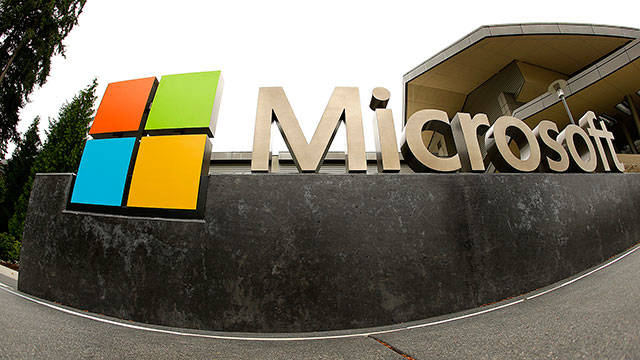Hamza Shaban, The Washington Post
Microsoft is aiming to bring broadband internet to millions of rural Americans within the next five years through what is now unused TV spectrum, the company announced Tuesday.
Microsoft’s ambitious plan, dubbed the Rural Airband Initiative, will begin in 12 states, where the company said it will invest in broadband connectivity alongside local telecom services. The company said that it does not intend to enter the telecom business itself or profit directly from the initiative. Instead, Microsoft said it will supply the upfront capital required to expand broadband coverage, then recoup that cost by sharing in the revenue with local operating partners.
“The key now is to stimulate private sector investment and combine this with targeted and efficient public-sector support,” President and Chief Legal Officer Brad Smith said Tuesday in a blog post.
The strategy of turning to unused TV spectrum, or white space, to expand high speed internet access is not new to Microsoft, which has long sought to use vacant airwaves to provide cheap, wireless broadband. And while a range of solutions will be required to connect these people, the company said that it decided to use TV spectrum instead of fiber optic cables or fixed wireless technology, such as 4G, because it is significantly cheaper.
Microsoft’s announcement comes at a time when other technology companies are developing ways to deliver internet connectivity to tens of millions of people living in rural areas in the U.S. and other underserved markets. Google and Facebook, for example, have both sought to explore the use of drones, lasers, and satellite technology to bring connectivity to the developing world. Facebook launched its Internet.org initiative to connect the nearly 5 billion people around the world who don’t have access to affordable internet.
Microsoft’s plan, however, may not be the best way to go about expanding internet access to others, some experts say. “We think increasing rural broadband is a good idea but not the way Microsoft is proposing it,” said Dennis Wharton, the executive vice president of the National Association of Broadcasters. “They are making a lot of wild promises. Their white space idea has been around for over a decade and has proven to be a complete, abject failure.”
He also pointed to what he said was Microsoft seeking a free government handout to use the spectrum, rather than bidding for airwaves through the Federal Communications Commission’s incentive auction.
Microsoft said that the total cost of eliminating the rural broadband gap would fall between $8 and $12 billion. But the company did not say how much the Rural Airband Initiative would cost or how much upfront money it would be contributing.
The company plans to have pilot programs up and running within the next year in Washington, North Dakota, South Dakota, Arizona, Kansas, Texas, Wisconsin, Michigan, Virginia, Georgia, New York and Maine. Microsoft envisions the project as a nationwide catalyst to bring online the estimated 34 million Americans who don’t have affordable access to the Web.
Talk to us
> Give us your news tips.
> Send us a letter to the editor.
> More Herald contact information.

























